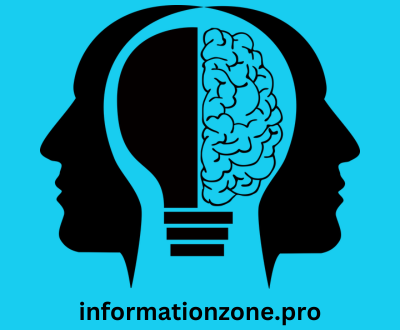lifespan portal
Imagine a world where your lifespan is not just a number, but an intricate tapestry of science, technology, and personal health. What if you could unlock the secrets to living longer and healthier through a simple digital interface? Welcome to the concept of a lifespan portal—a revolutionary approach that merges cutting-edge research with user-friendly technology. As we stand on the brink of breakthroughs in longevity science, understanding what a lifespan portal entails could change how we view aging altogether. Join us as we delve into this fascinating topic and explore its potential to extend our years while enhancing our quality of life.

What is a Lifespan Portal?
A lifespan portal is an innovative digital platform designed to empower individuals in managing their health and longevity. It combines personal data with advanced analytics, offering insights tailored to each user’s lifestyle and genetics.
Think of it as your personalized health dashboard. Users can track biomarkers, dietary habits, exercise routines, and even mental well-being through this centralized system. The goal? To provide actionable recommendations that promote a longer, healthier life.
This concept isn’t just about adding years; it’s about enhancing the quality of those years. By integrating cutting-edge technologies like artificial intelligence and genomic data analysis, a lifespan portal can transform how we approach aging altogether.
With real-time feedback and predictive modeling, users receive guidance based on current trends in longevity research. This dynamic interface holds the potential to revolutionize individual healthcare by focusing on prevention rather than treatment alone.
The Science Behind Lifespan and Longevity
Understanding lifespan and longevity involves delving into complex biological processes. Aging is not merely a countdown; it’s influenced by genetics, environment, and lifestyle choices.
At the cellular level, telomeres play a crucial role. These protective caps at the end of chromosomes shorten with each cell division. When they become too short, cells can no longer divide efficiently, leading to aging signs.
Oxidative stress is another factor impacting longevity. Free radicals damage cells over time, contributing to various age-related diseases.
Moreover, studies show that caloric restriction may extend lifespan in several species. This intriguing relationship hints at metabolic pathways that could be targeted for anti-aging interventions.
Further research focuses on understanding how these elements interact within intricate biological networks. By unraveling these mysteries, scientists aim to unlock secrets that could redefine our approach to aging and healthspan.
Technologies That Could Contribute to a Lifespan Portal
The future of lifespan portals is bright, fueled by groundbreaking technologies. One significant area is artificial intelligence and data analytics. These tools can sift through vast amounts of health data, identifying patterns and predicting health risks before they become critical.
Genomic medicine plays a crucial role as well. With advancements in gene editing, we can now target specific genes responsible for age-related diseases. This approach opens doors to personalized treatments that could extend healthy living.
Regenerative medicine offers another exciting possibility. Stem cell research holds the potential to repair damaged tissues and organs, rejuvenating our bodies at a cellular level.
These innovations are merely the beginning; the landscape continues to evolve rapidly, promising even more incredible developments in lifespan enhancement technology.
1. Artificial Intelligence and Data Analytics
Artificial Intelligence (AI) and data analytics are revolutionizing our understanding of lifespan. These technologies can analyze vast amounts of health data, identifying patterns that were previously invisible.
With machine learning algorithms, researchers can predict potential health issues long before symptoms appear. This proactive approach allows for tailored interventions aimed at extending life.
Moreover, AI-driven platforms can aggregate personal health information from wearables and medical records. By doing so, they provide individuals with personalized insights on how lifestyle changes could enhance longevity.
The predictive capabilities of AI also extend to drug discovery. It speeds up the process by analyzing compounds that may promote healthier aging or combat age-related diseases effectively.
As these tools evolve, they will play a vital role in shaping the future landscape of lifespan portals—offering everyone a glimpse into their unique path to longevity.
2. Genomic Medicine and Gene Editing
Genomic medicine is revolutionizing how we think about health and longevity. By understanding our genetic makeup, scientists can tailor treatments specifically for individuals.
Gene editing technologies like CRISPR enable precise modifications to DNA. This opens a world of possibilities, from correcting genetic disorders to enhancing overall health.
With these advancements, we can potentially eliminate diseases that shorten lifespans. Imagine being able to edit out the genes responsible for conditions like heart disease or certain cancers.
Moreover, genomic medicine allows us to explore personalized medicine strategies. Each person’s unique genome provides insights into optimal therapies and preventive measures tailored just for them.
As research progresses, the implications become even more profound. The combination of genomics with other emerging technologies could redefine what it means to age successfully and live longer lives filled with vitality.
3. Regenerative Medicine and Stem Cells
Regenerative medicine is revolutionizing the way we think about aging and lifespan. At its core, this field focuses on repairing or replacing damaged cells and tissues to restore function.
Stem cells play a crucial role here. These unique cells have the ability to develop into various types of specialized cells in the body. This means they can potentially regenerate damaged organs or even systems that decline with age.
Researchers are exploring how stem cell therapy could combat age-related diseases like Alzheimer’s or heart disease. By harnessing their regenerative capabilities, scientists aim to rejuvenate the body at a cellular level.
The prospect of using stem cells extends beyond treatment; it opens doors for preventive measures against aging itself. As studies continue to unfold, we inch closer to realizing a future where lifespans may be significantly extended through these groundbreaking advancements.
The Future of Lifespan Portals
The future of lifespan portals promises a revolution in how we approach health and longevity. Imagine a seamless integration of technology, medicine, and lifestyle choices tailored to each individual.
As artificial intelligence becomes more sophisticated, these portals will analyze vast amounts of data. Personalized recommendations for diet, exercise, and preventive care could emerge from this analysis.
Advancements in genomic medicine will allow us to decode our DNA like never before. This means that lifespan portals might predict potential health issues long before they arise.
Regenerative medicine holds the key to repairing or replacing damaged cells and tissues. With stem cell therapies on the rise, lifespan portals could offer solutions that extend not just life but quality life as well.
With ongoing research being conducted worldwide, the possibilities are endless. These innovations could redefine aging itself and open doors to vibrant new lives at any age.
conclusion
The concept of a lifespan portal is not just a distant dream; it’s an emerging reality that merges technology with the science of longevity. As we explore the intricate relationship between genetics, medicine, and data analytics, it’s clear that advancements in these areas could reshape how we perceive aging.
Artificial intelligence offers unprecedented capabilities to analyze vast datasets related to health and wellness. This means personalized insights into our lifestyles can be derived, creating tailored approaches for healthier living. Meanwhile, genomic medicine opens doors to understanding our unique genetic blueprints, potentially allowing us to edit genes associated with age-related decline.
Regenerative medicine takes this further by harnessing stem cells’ power to repair and regenerate tissues. Together with other breakthroughs in biotechnology, these innovations pave the way for a future where longevity is more within reach than ever before.
As society stands on the brink of significant changes regarding lifespan extensions through technology and healthcare improvements, one thing remains certain: embracing these developments may lead us toward longer, healthier lives—fostering hope for generations ahead. The journey towards realizing a fully functional lifespan portal is underway; its impact will resonate across various aspects of life as we move forward into this new era of possibility.







